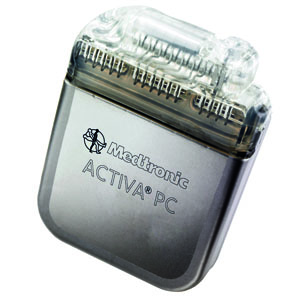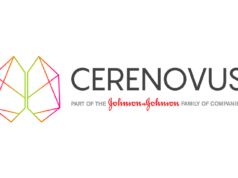
Medtronic plc has announced US Food and Drug Administration (FDA) approval of Medtronic Deep Brain Stimulation (DBS) Therapy for use in people with Parkinson’s disease of at least four years duration and with recent onset of motor complications, or motor complications of longer-standing duration that are not adequately controlled with medication.
In 2002, the FDA initially approved Medtronic DBS Therapy for use in patients with advanced Parkinson’s disease. Medtronic DBS has demonstrated improvement in motor complications, quality of life, activities of daily living and reduction in medication usage in individuals with Parkinson’s disease.
“Strong clinical evidence demonstrates that, when compared to the best medical treatment alone, Medtronic DBS Therapy offers Parkinson’s patients with recent onset of motor fluctuations and dyskinesias not adequately controlled with medication a higher likelihood of symptom improvement. Historically, the therapy has often not been considered until symptoms have had a significant impact on quality of life,” said Mahlon DeLong, the W P Timmie professor of neurology at Emory University School of Medicine, USA. “This decision by the FDA is significant in that Medtronic DBS Therapy may be considered before the symptoms and complications of disease become severe. Parkinson’s patients should be referred to an experienced DBS multidisciplinary centre for a comprehensive evaluation of possible Medtronic DBS therapy. For patients who are still functioning socially and able to work, this may translate into improved quality of life and an overall reduction of the burden of disease.”
This recent approval by the FDA was based on data from the EARLYSTIM clinical study, published in the New England Journal of Medicine in 2013, which found that patients treated with Medtronic DBS Therapy and best medical therapy (BMT) reported a mean improvement of 26% in their disease-related quality of life at two years, compared to a 1% decline in patients treated with BMT alone. In a study of patients with longer-standing motor complications, DBS patients’ quality of life improved 20% from baseline to six months compared to no improvement in the patients treated with BMT alone.
“Parkinson’s disease is progressive, and as a result a patient’s quality of life will deteriorate over time. This approval is important because it expands the therapeutic window when patients can benefit from DBS,” said Lothar Krinke, vice president and general manager of the Brain Modulation business, which is part of the Restorative Therapies Group at Medtronic. “Medtronic’s goal is to advance medical care and deliver the best possible patient outcomes. DBS is proven to provide long-term benefits and it can now be used sooner in the care continuum, giving patients with recent onset motor complications another option to maintain or restore quality of life.”
Impaired motor complications are associated with decreased quality of life, and the impact is similar for patients with recent onset or longer-standing motor complications. In the EARLYSTIM study, 85% of patients who received DBS along with BMT had a clinically meaningful improvement compared to only 36% in the BMT alone group over 24 months. Thirty per cent of patients that remained on BMT alone got worse over 24 months compared to only 2% in the DBS group. The study also found a 61% improvement in levodopa-induced complications, including dyskinesias and motor fluctuations, in participants receiving Medtronic DBS therapy at two years, compared to a 13% worsening in those only receiving BMT. Additionally, a long-term study of people with advanced Parkinson’s disease who received DBS therapy show benefits at 10 years, despite potential surgical and device-related complications.













